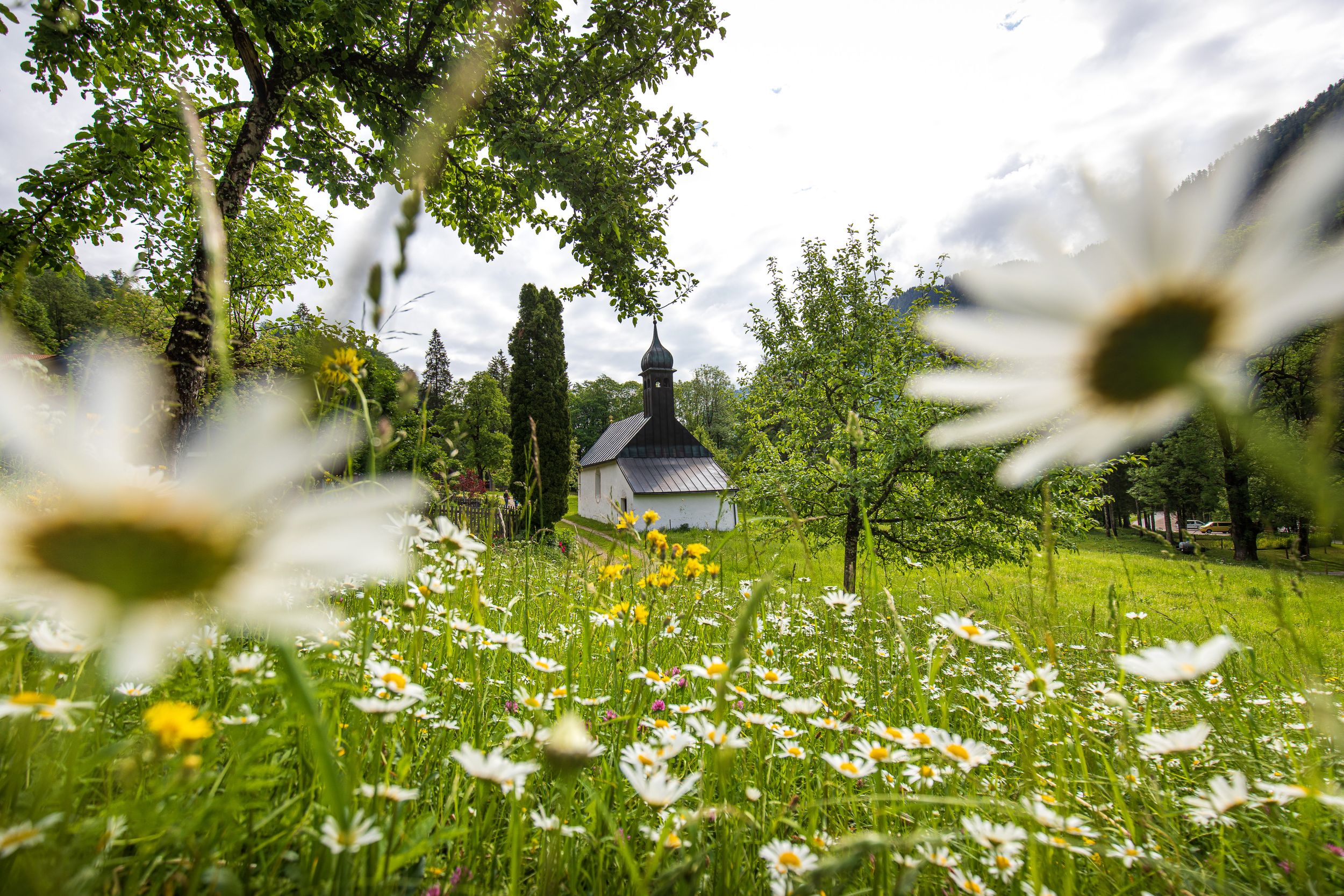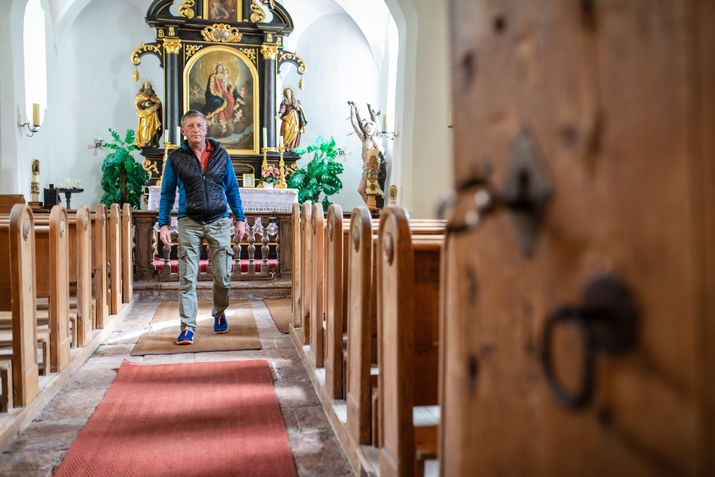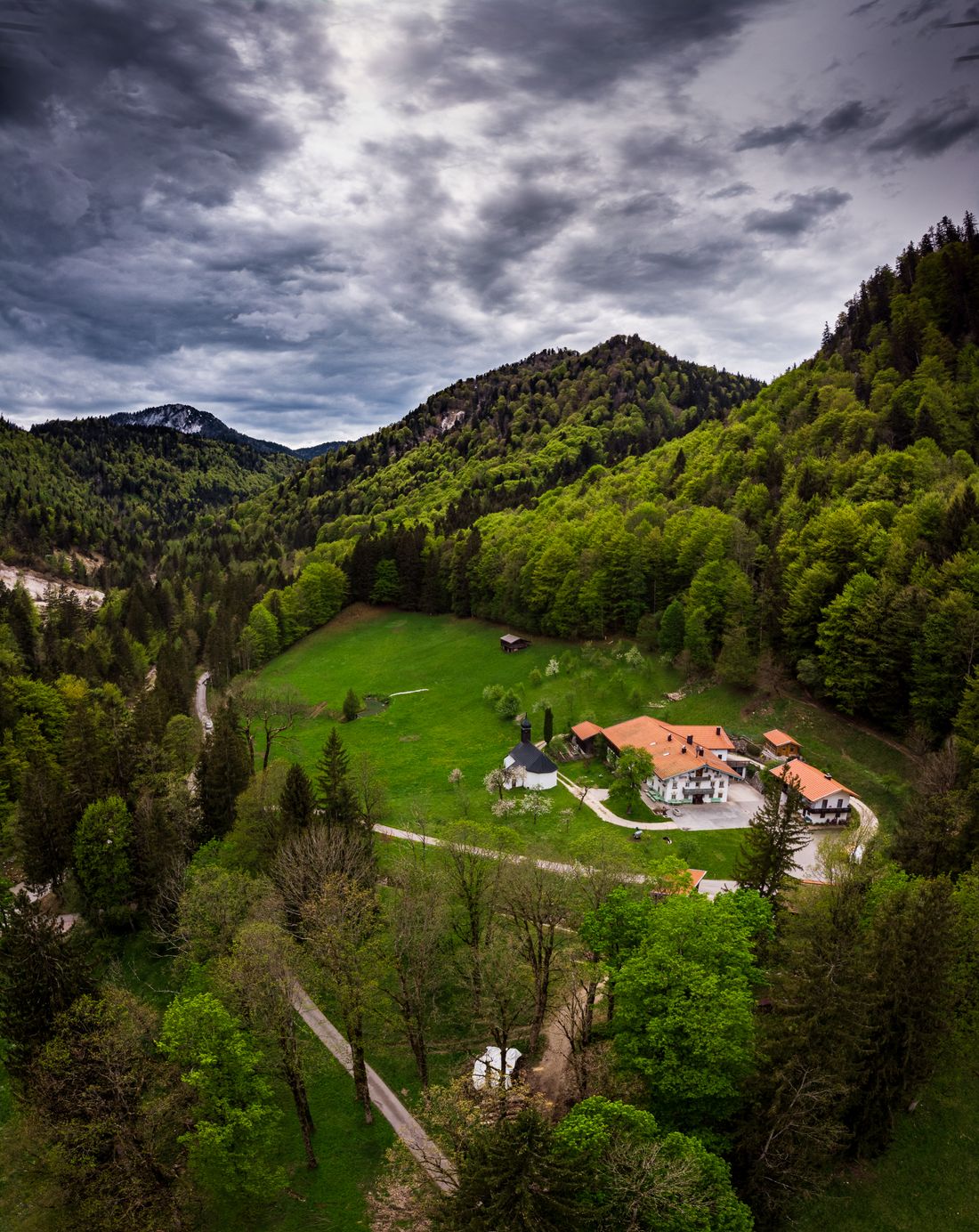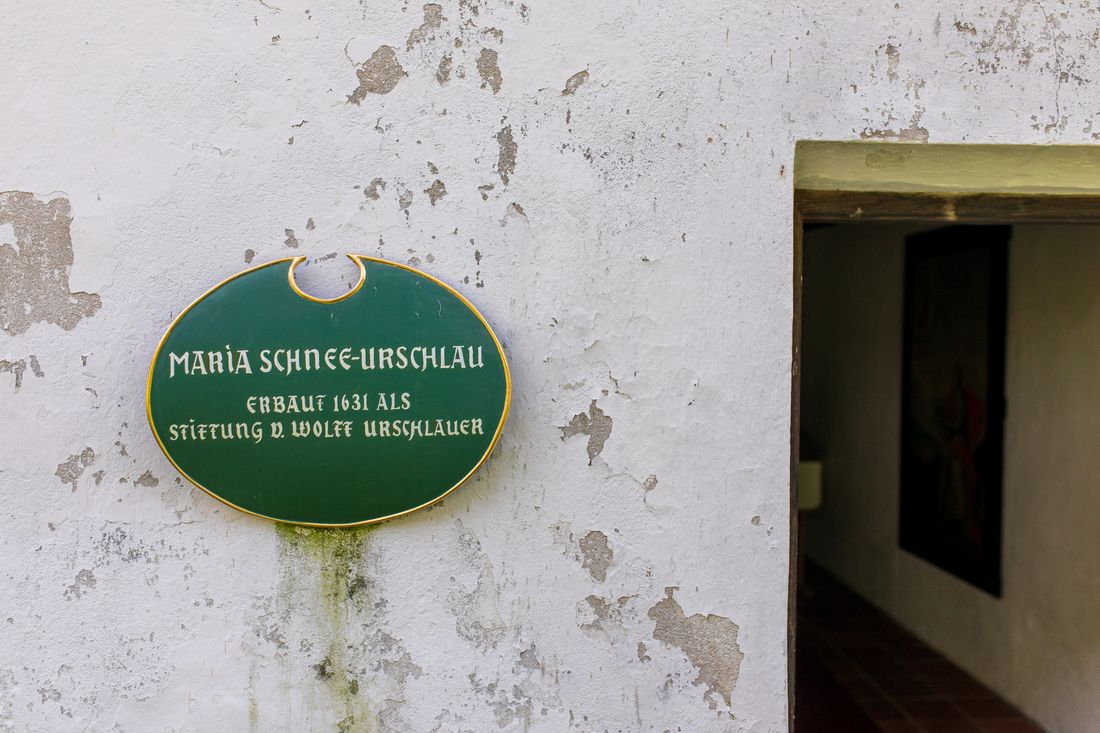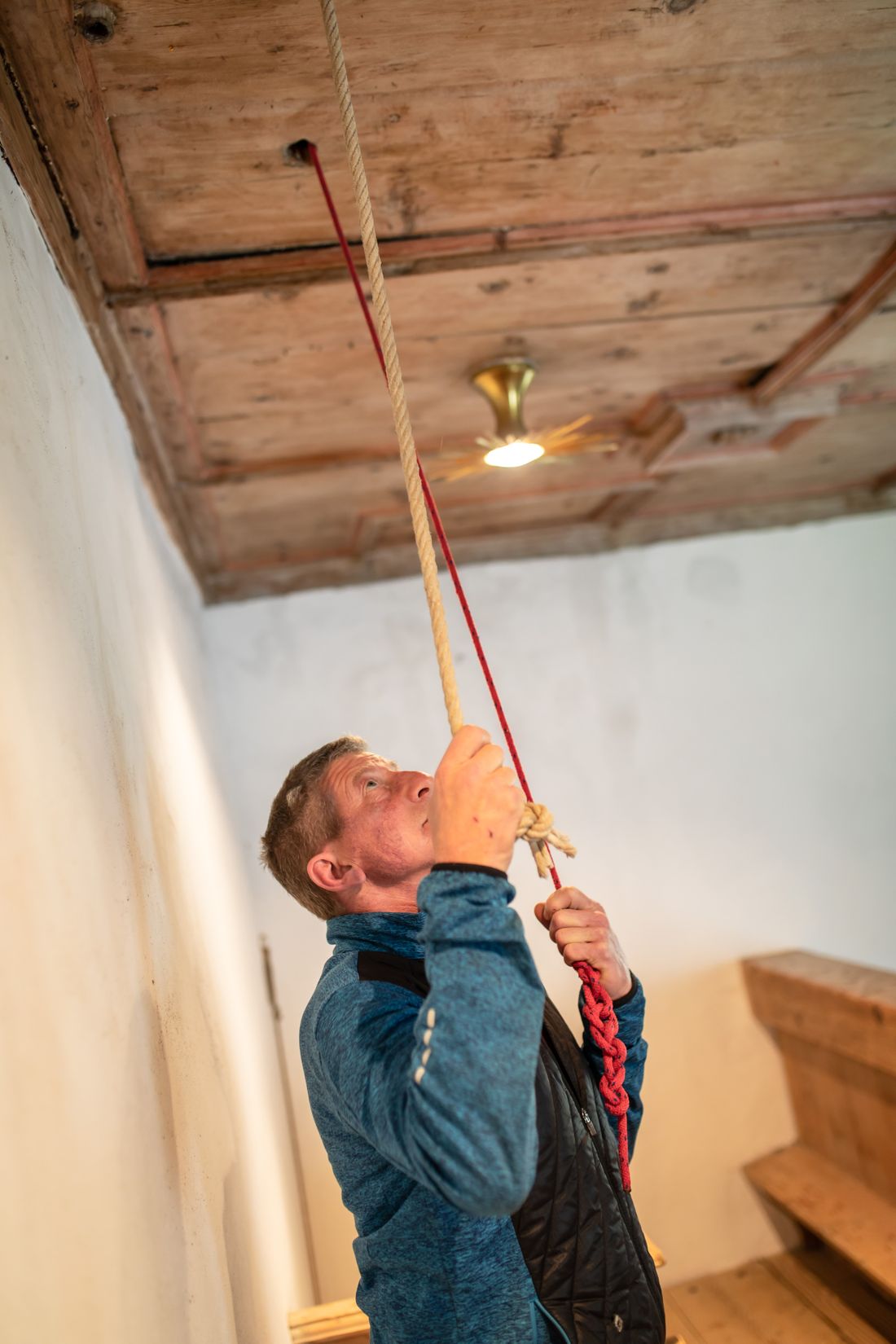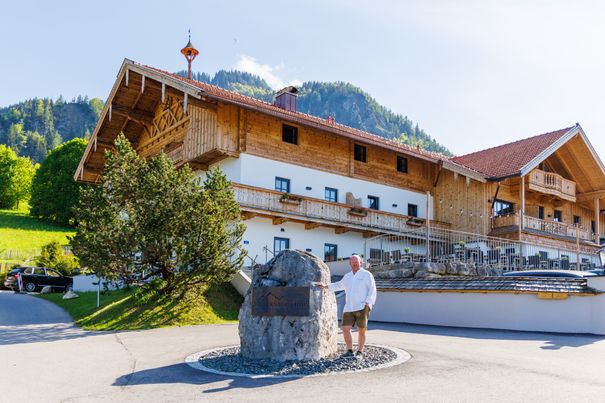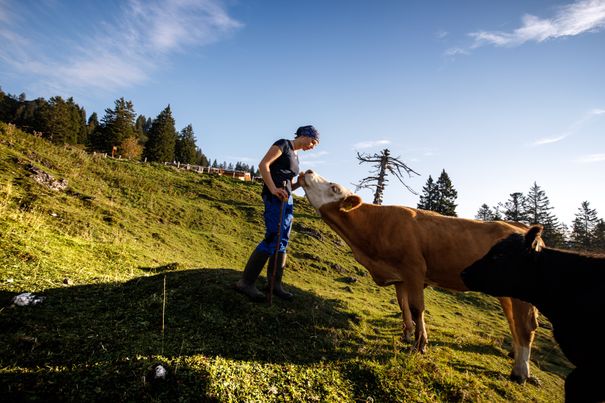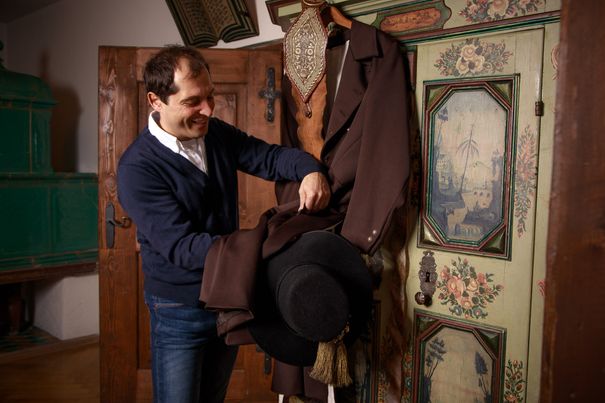Old custom
There is lightning outside. A loud threatening rumble follows almost immediately afterwards. The thunderstorm is now almost over the Urschlauer Hof. Quickly, Martin continues into the church – he has no time to look at the magnificent altar with the Holy Family. He climbs the steep wooden steps to the gallery, grabs the ropes and pulls with all his strength. Bell chimes fill the valley. It’s as if their clear sound were challenging the thunder, quietening it, casting it out.
Evenly and rhythmically, Martin Lex pulls the ropes. The part-time farmer comes from the Urschlauer Hof, as his mother and grandfather did before him. The property dates back to 1785. The little Maria Schnee church is even older still. Wolf Urschlauer had it built in 1631, in the middle of the Thirty Years War. He even sacrificed a large part of his property to put the Mother of God in a merciful mood.
Martin Lex’ ancestors also rang the bells when storms were looming. People used to believe that the sound waves of a consecrated bell could banish thunder and lightning. They also lit the weather candle in their parlours. And the furnace was fired up to burn some holy pussy willows from the last Palm Sunday. Superstition? Folklore? Faith in god? Martin Lex shrugs his shoulders. “There’s no harm in it, anyway,” he says with conviction.
